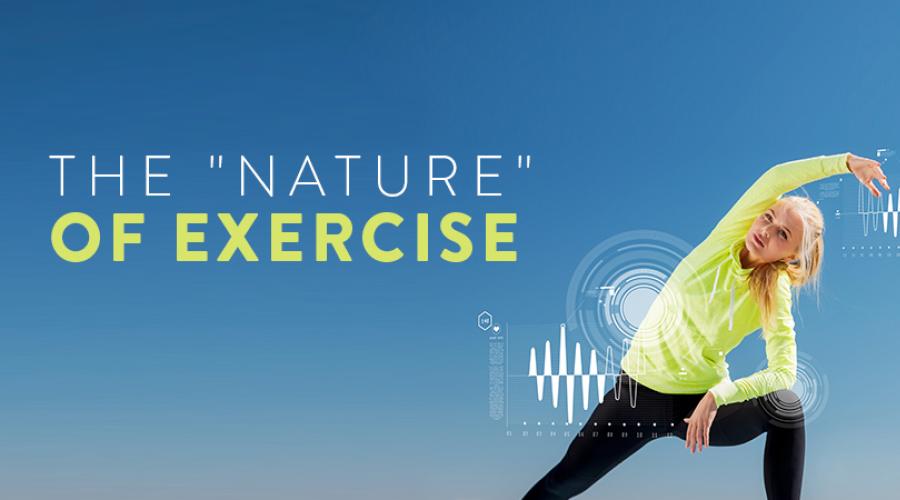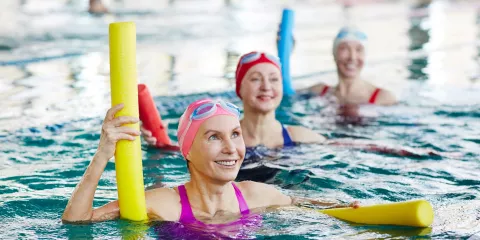
Your heart rate climbs. You sweat. You feel elation at your sense of accomplishment.
A pleasing soreness comes into your muscles. You may feel a little fatigue and hunger. You sleep like a champ.
We know this is what happens when we exercise. But what’s really going on? What happens beyond our immediate perception?
As you stretch before or after your daily workout, let’s take a quick look at the “nature” of exercise.
When You Step on the Pedal, You Use Fuel
In a few respects, your body can be compared to a car. When you push down on the pedal to increase speed, your car uses more gas. This is the case when we exercise, too, but unlike our cars, our bodies have a couple metaphoric tanks from which to draw fuel. The first tank is filled with glucose and adenosine triphosphate (ATP), a molecule which—like CoQ10—is important in the cellular exchange of energy. This first tank kicks in immediately when you start exercising, and is expended quickly.
Then the body goes for the second tank, which is oxygen. Your heart rate rises, you take in and expel air more quickly, and you’re on your way.
Here’s the funny thing: if you don’t use that glucose in exercise and you take in more of it than you need for its other important functions (like acid synthesis), the body looks for a place to put it. And where does it go? Your hips, your stomach…
Go Ahead, Rip Your Muscles
The soreness in your muscles after a good weight-bearing exercise (including bearing
your own weight on a run or even a long walk) is the result of tiny tears happening to the muscle. It does seem like a strange design on the part of nature, but it’s quite effective. As with most other tears in the body, the body seeks to repair itself. In the case of muscles, most of the soreness is the feeling of the process of the muscles fibers replenishing bigger and better than they were before.
No Kidding about the Kidneys
An under-appreciated contributor to—and beneficiary of—exercise is your kidneys.
First, your kidneys are the site of your adrenal glands. When you exercise, your adrenal glands release cortisol, which helps the heart rate increase and helps the body convert stores of energy into fuel. Next, the kidney changes the way it filters your blood. Researchers now believe that this change actually helps the kidneys flush the blood, and a study in the Journal of Sport Medicine established the idea that the toxins flushed from your kidneys during exercise helps prevent kidney diseases.1
When to Sweat the Sweat
Sweat tends to happen for one of two reasons:
- our heart rate has hit 80% of age-adjusted max
- we are hot
Sweat, physiologically speaking, is an elegant way for our body to maintain homeostasis - it’s like an air-conditioning system. It does not, however, result in weight loss, except for a little negligible water weight, which will return when you drink some water. In fact, if you lose too much water weight, this is not a good thing - it can cause dehydration, which will begin to shut down important bodily processes.2 A note here: beware of fad diets that try to get you to lose “water weight.” Water weight is not nearly as plentiful as fat, and losing it is more dangerous.
Where There’s Smoke, There May Be Anti-Inflammation Properties
When chronic, inflammation in the body can be devastating. Think of inflammation as what happens when something is not functioning right - like a car overheating. Just as the build-up of heat in a car can melt your radiator, the build-up of heat in the body can wreck your organs - indeed, the chances of heart disease, stroke, and brain diseases all rise in the presence of chronic inflammation.
The good news is that exercise seems to dispel the inflammation - like a properly working vent. Exactly how exercise dispels inflammation is not 100% understood, but some elegant tests have established the connection, particularly by looking at the C-reactive protein (CRP). CRP is what is known as a “marker” for inflammation - if CRP is high, so is inflammation. When researchers monitored exercising men for CRP, they found that men who exercised most had the lowest levels of CRP, hence lower levels of inflammation.
The Heart of the Matter
Finally, there is the heart. Obviously, the heart works harder during exercise. And, obviously, the heart is such a marvelous organism that it gets better through use. In this way, it’s more like a leather jacket than a car. But did you know that exercise leads the body to create new blood vessels? It’s true, and the result is a decrease in blood pressure. It’s like magic.
Exercise is incredibly important, for all the reasons mentioned above. Exercising smart is important, too. It’s never a bad idea to consult a doctor if it’s been awhile since you worked out. But don’t let inertia win - if you haven’t worked out in awhile, start slow - even 15 minutes 4 days a week will produce some of the good effects listed in this post. And because working out makes the body stronger, 15 minutes turns into 30…and 30 turns into a prevented heart attack!
References
- Morris, Jenna. Can Working Out Too Much Affect Your Kidneys? http://www.livestrong.com/article/546278-can-working-out-too-much-affect-your-kidneys/
- Sharecare.com. If I sweat during my workout am I burning more fat? http://www.sharecare.com/health/fitness-exercise/if-sweat-during-workout-fat












